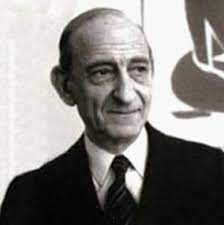Aron, Raymond

Bio: (1905-1983) French sociologist and historian. Raymond Aron studied at the École normale supérieure, where he received his doctorate in 1930 in the field of philosophy of history. Although he was a philosopher by profession, he was primarily engaged in sociology. He was a professor at the Sorbonne from 1955 to 1968 and taught political sociology. He was a great critic, from liberal positions, of political events in France, both as a sociologist and as a politically engaged journalist. He was especially interested in political sociology. He is very important for French sociology due to the popularization of classical German sociology in France. He was an opponent of Marxism, which was a very lonely position in the social sciences in post-war France. Aron was heavily influenced by Max Weber, as seen in his analyzes of industrial society, power, political elites, and political organizations. Aron also researched international relations and war. He is also known for his partially unsuccessful attempt to bring back from oblivion some of Pareto's sociological theories and scientific concepts.
His most famous work, Democracy and Totalitarianism (trans. 1968), is part of a trilogy in which the author studies the political spheres in industrialized societies. All three books are made up of Aron's lectures at the Sorbonne. The author deals with issues of definition of the politics, analysis of constitutional-plural systems (that is how he refers to democracies), as well as totalitarian states, or as he calls them "monopoly party regimes". Aron writes about the stability and efficiency of constitutional-plural systems, but also about the conditions and reasons for their "corruption". He believes that respect for the law, as well as readiness for compromise, are most important for the good functioning of these societies. He sees fascist and one-party socialist systems as totalitarian systems and considers paternalism one of the basic features of monopoly political regimes.
Aron is also known as one of the most consistent proponents of system convergence theory. He believes that the development of science and technology, as well as the increase of productivity, will lead to a unique type of industrial society, and capitalism and socialism are only "two modalities of the same kind". He advocates the creation of a universal theory that would deal with all the key features of modern societies, where the concept of "industrial society" would be central.
Main works
La Sociologie allemande contemporaine (1935);
Introduction à la philosophie de l'histoire: Essai sur les limites de l'objectivité historique (1938);
L'Homme contre les tyrans (1944);
De l'armistice à l'insurrection nationale (1945);
Le Grand Schisme (1948);
“Social Structure and the Ruling Class,” British Journal of Sociology (1950);
Les Guerres en chaîne (1951);
L'Opium des intellectuels (1955);
Espoir et peur du siècle: Essais non partisans (1957);
Paix et guerre entre les nations (1962);
Dix-huit leçons sur la société industrielle (1963a);
Le Grand Débat. Initiation à la stratégie atomique (1963b);
La Lutte des classes (1964);
Essai sur les libertés (1965);
Démocratie et totalitarisme (1965);
Trois essais sur l'âge industriel (1966);
Les Étapes de la pensée sociologique (1967);
La Révolution introuvable: Réflexions sur les événements de mai (1968);
Les Désillusions du progrès (1969);
D'une sainte famille à l'autre: Essai sur le marxisme imaginaire (1969).
Works translated into English:
German Sociology (1957, in French 1935);
Introduction to the Philosophy of History: An Essay on the Limits of Historical Objectivity (1948, in French 1938);
The Century of Total War (1954, in French 1951);
The Great Debate (1965, in French 1963b);
Peace and War: A Theory of International Relations (1966, in French 1962);
Eighteen Lectures on Industrial Society (1967, in French 1963a);
The Industrial Society. Three Essays on Ideology and Development (1967, in French 1966);
Democracy and Totalitarianism (1968, in French 1965);
Progress and Disillusion: The Dialectics of Modern Society (1968, in French 1969);
The Opium of the Intellectuals (2001, in French 1955);
Main Currents in Sociological Thought: Volume 1-2 (2018, in French 1967).

